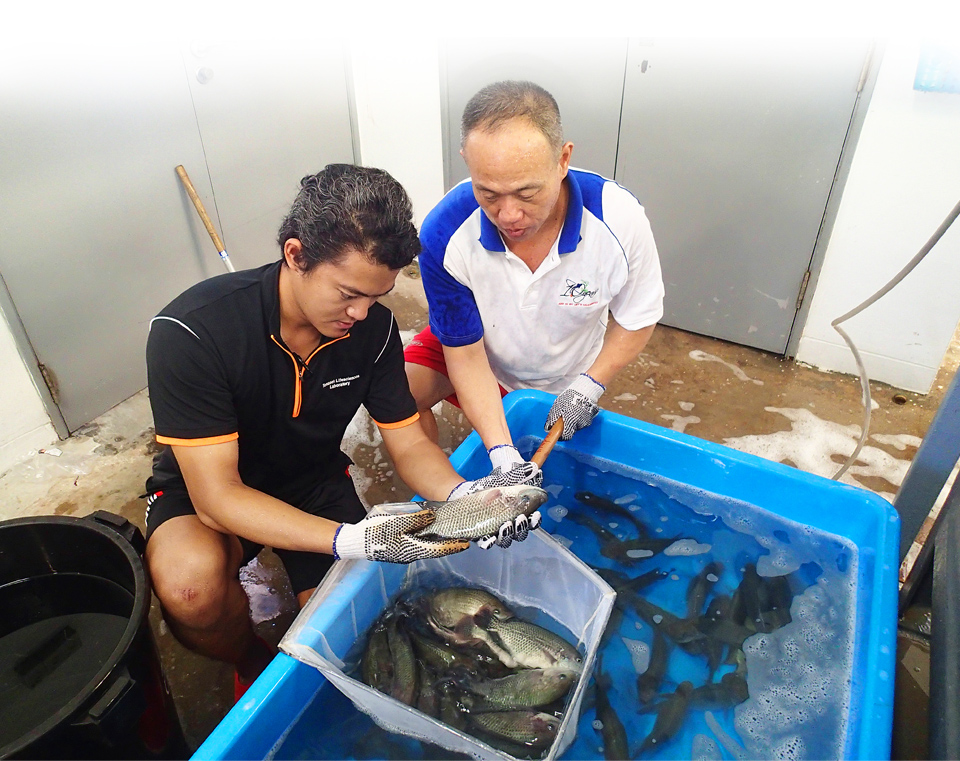From Fresh to Sea Water:
Development of
Saline-tolerant Tilapias
AVA’s Marine Aquaculture Centre (MAC) develops technology for the farming of tropical marine food fish. Suitable technologies and intensive farming systems are transferred to local food fish farms, so that Singapore’s supply of these fishes can be enhanced. A selective breeding project involving Asian seabass and Mozambique tilapia is currently ongoing at MAC. The project develops fast-growing and good quality fish fry for intensive farming by our aquaculture industry.
The tilapia is one of the most farmed species in the world with global aquaculture production reaching 4.5 million tonnes in 2012 (FAO Fisheries and Aquaculture Statistics). Some of the most commonly farmed tilapia species and their hybrids are cultured in freshwater ponds and lakes of many countries. Besides being fast growers, tilapias are omnivorous and can thus be fed well on plant-based diets.
However, several tilapia species do not tolerate salt water well. They exhibit slow growth and high mortality rates when reared in seawater such as ours. The Mozambique tilapia, although salt-tolerant, does not grow fast without selective breeding.
Since 2011, AVA has been collaborating with Temasek Life Sciences Laboratory Ltd to work on improving the growth rate of the Mozambique tilapia in seawater. Advanced molecular biotechnology and marker-assisted selection (MAS) technique are employed in conjunction with classical selective breeding methods to identify faster-growing and salt-tolerant strains in the Mozambique tilapia. The MAS technique in particular allows desired traits to be selected more accurately and effectively, without any genetic modification.
The growth performance of different batches of saline-tolerant tilapia in full strength seawater culture conditions was evaluated and fast growing individuals were identified and selected for development of future broodstock. Besides faster growth, the team also initiated the development of breeding lines for traits such as disease resistance and higher nutritional value of meat content. The project is targeted for completion by 2017. When successful, Singapore would have another good option of food fish to farm. Consumers will also have an added alternative to locally farmed freshwater tilapias.








